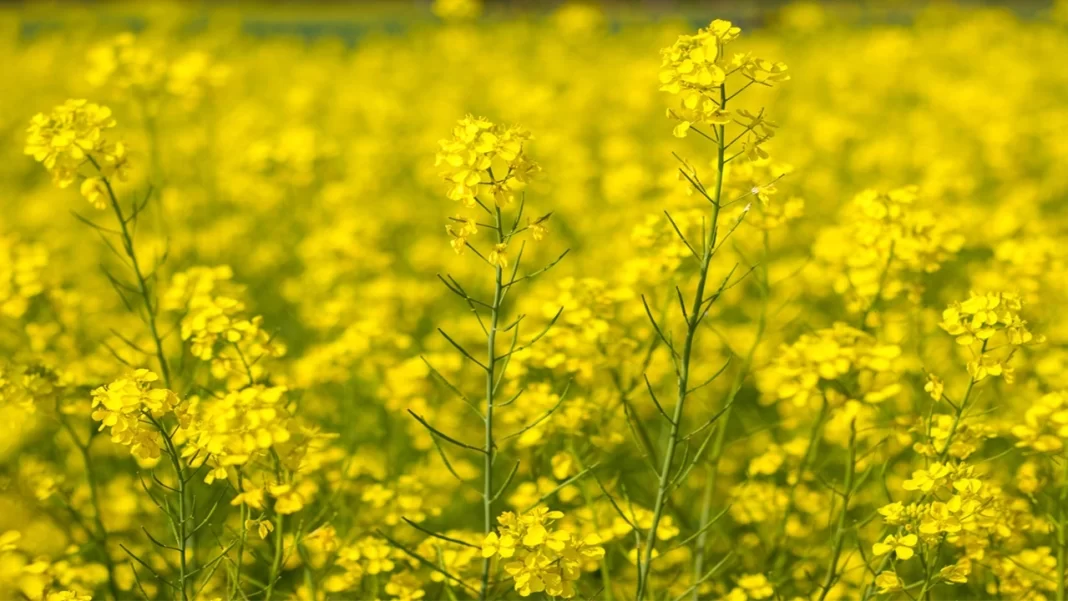The centre told the Court that opposition to GM technology was hurting farmers, consumers and the industry and adoption of GM crops was a policy decision supported by trials and expert opinion
After the Supreme Court reserved its judgment on PILs challenging a government move for the commercial release of genetically modified (GM) mustard variant Dhara Mustard Hybrid-11 (DMH-11), the centre told the Court that India already imports and consumes oil derived from GM crops. It further said that “opposition to such technology based on such unfounded fears of adverse impact is only hurting farmers, consumers, and industry” and “will be detrimental for Indian agriculture”.
“In our view, this cannot be an adversarial issue,” but rather “what is good for the country, good for the people,” said the bench of Justices BV Nagarathna and Sanjay Karol as they reserved their ruling.
Solicitor General (SG) Tushar Mehta, representing the centre, stated in Court that mustard is India’s most significant crop for seed meal and edible oil. India imports between 55% and 60% of its edible oil. To address new issues in Indian agriculture, ensure food security and lessen reliance on foreign aid, plant breeding programmes must be strengthened. This includes utilising cutting-edge genetic technologies like genetically engineered crops.
Mehta said: “India is importing and using a significant amount of edible oil derived from genetically modified oilseeds. Approximately 55,000 MT of canola oil are imported by India, primarily from genetically modified canola seeds. In a similar vein, around 2.8 lakh tonnes of soybean oil are imported each year, the majority of which is genetically modified oil. The majority of exporting nations, including the US, Canada, Argentina and Brazil, grow genetically modified soybeans. Approximately 80% of soybeans grown worldwide are genetically modified (GM) soybeans.”
In addition, he stated that even in the absence of herbicide-tolerant (HT) crops, India’s yearly herbicide usage was valued at Rs 4,500 crore. The country’s weed-related crop losses are estimated to be $11 billion (Rs 1 lakh crore) annually. He argued that “HT crops offer efficient weed control”, adding that “it will be detrimental to ban development of HT crops for Indian agriculture as labour is expensive and unavailable”.
The government submitted that as mustard was one of the oilseeds that produces the most oil in India, the DMH-11 hybrid had shown increased per-hectare yield by 25-30% over the traditional varieties due to exploitation of hybrid vigour. It also added that domestic production of edible oils would rise considerably.
Mehta further contended that “there are certain elements sponsored by those who are importing tonnes of the same edible oil into India and do not want India to be self-sufficient and self-reliant in production of this basic food ingredient used by common man”. According to the government, the petitioner was fully aware that trials cannot be conducted in a laboratory. It stated that “any experiment with newly grown crop can only be done in an open field”.
While giving details of the trials, the government stated: “There are only eight places where this experimentation will be taking place under controlled circumstances and strictly as per the statutory regime already in place. There is no alternative to conducting trials in the open field of approximately 600 square metres per location. Out of the eight such sites of 600 sqmt each, the experiment had already started in six of them and the seeds were sown during rabi season 2022-23.”
According to the government, the adoption of GM crops was a policy decision supported by trials and expert opinion. “To safely encourage this endeavour in India, an elaborate statutory scheme exists to ensure effective regulatory review for the research, development, and commercial use of GE technologies,” it said.
Till date, the petitioners have not identified a single inadequacy in the current legal framework or its implementation in the DMH-11 trial, government stated.
Statistics released by the SG stated: “India’s total edible oil demand is 24.6 million tonnes (2020-21), with 11.1 million tonnes of domestic availability (2020-21).” In 2020-21, imports of Rs 1,15,000 crore covered 13.45 million tons (or 54%) of our edible oil needs. These imports comprised primarily of palm oil (57%), soybean oil (22%), sunflower oil (15%), and a minor amount of canola quality mustard oil. In 2022-2023, 155.33 lakh tonnes, or 55.76% of our edible oil needs were imported.
He stated that although the overall area under oilseed production in 2010-11 was 272.2 lakh hectares, it climbed to 302.3 lakh hectares in 2022-23. Additionally, the average annual per capita oil consumption went from 2.9 kg in 1950-1960 to 19.5 kg in 2022.
In August last year, the Supreme Court had refused to pass any urgent directions on the centre’s application seeking release of GM mustard for seed production and testing. Advocate Prashant Bhushan had opposed the centre’s application and said that though it was not a commercial release, no environmental trial should be allowed until the whole regulatory system was in place. He had apprehended that environmental release could contaminate non-GM crops.
The centre had submitted an oral undertaking before the apex court, though not formally recorded in the Court’s order, saying that it would not take any precipitative steps on the decision made by the Genetic Engineering Appraisal Committee (GEAC) allowing the environmental release of the GM mustard.
The Committee had allowed the environmental release of GM mustard for seed production and testing. Earlier, in 2017, GEAC had cleared the proposal for commercial cultivation of GM mustard. However, the Union environment ministry vetoed it and suggested that the panel hold more studies on the GM crop. In October 2022, GEAC again cleared the proposal for commercial cultivation of GM mustard.
—By Abhilash Kumar Singh and India Legal Bureau


